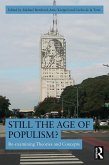
Broschiertes Buch
A Global Comparison
15. Juni 2023
Routledge / Taylor & Francis
| eBook, ePUB | 40,95 € |
Ähnliche Artikel

eBook, PDF
23. März 2023
Taylor & Francis eBooks

eBook, PDF
1. Juni 2022
Taylor & Francis eBooks

eBook, PDF
17. März 2021
Taylor & Francis eBooks


eBook, PDF
9. Februar 2022
Taylor & Francis eBooks


eBook, PDF
30. Dezember 2022
Taylor & Francis eBooks


Ähnlichkeitssuche: Fact®Finder von OMIKRON

